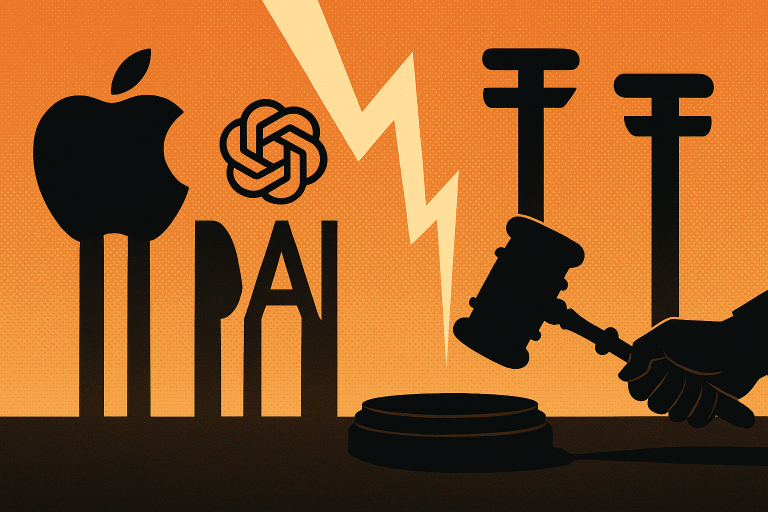A Texas federal court has allowed a major antitrust lawsuit to proceed, targeting Apple Inc. and OpenAI over claims that their partnership may suppress competition in artificial intelligence.
The legal challenge, brought by Elon Musk’s X Corp. and xAI, argues that Apple’s decision to embed OpenAI into the iPhone’s operating system gives the chatbot maker a major advantage, raising concerns about market dominance and reduced innovation.
The case moves forward as global regulators intensify scrutiny over how Big Tech firms expand into the generative AI space through partnerships and operating system-level integrations.
Legal scrutiny widens in AI competition battle
The lawsuit, filed in August in the Northern District of Texas, alleges that Apple’s decision to integrate OpenAI’s technology into its iOS ecosystem effectively undermines fair competition.
According to X Corp. and xAI, this move blocks rival AI companies from reaching iPhone users at a system level, limiting consumer choice and suppressing innovation across the sector.
US District Judge Mark Pittman on Thursday denied a motion by Apple and OpenAI to dismiss the case.
Though Pittman gave no detailed reasoning in the written ruling, he requested further submissions from both sides.
The litigation, filed under case number 25-cv-00914, now moves into its next phase, setting the stage for a legal clash that could influence how operating systems interact with third-party AI tools.
Billions at stake in battle over AI access
The complaint seeks billions of dollars in damages, claiming that Apple’s arrangement with OpenAI is harming the AI ecosystem by making it harder for emerging companies to compete.
The plaintiffs argue that consumers lose out because fewer choices are available when one AI provider is favoured by default within an operating system.
Apple’s legal response claims the allegations are misleading. The company states that it does not hold an exclusive contract with OpenAI and is planning to include support for other AI tools.
However, no additional details have been provided about which companies Apple might collaborate with or on what timeline.
OpenAI also rejected the claims, saying that the lawsuit is not about protecting competition but is instead “a campaign of lawfare”, referring to Musk’s long-standing disputes with OpenAI CEO Sam Altman.
Musk co-founded OpenAI in 2015 before later distancing himself from the company.
Operating system integration under the microscope
This case brings into focus the broader issue of how AI tools are being integrated into consumer technologies.
Embedding AI models directly into an operating system gives those providers a significant advantage over competitors who must rely on third-party apps or web interfaces to reach users.
With Apple’s devices serving over a billion users worldwide, the operating system’s influence is enormous.
X Corp. and xAI argue that OpenAI’s position within iOS could give it near-unreachable distribution advantages, solidifying its place in the AI market before alternatives can gain traction.
The lawsuit also comes at a time when global regulators are looking closely at similar Big Tech moves.
In the UK and the EU, competition authorities are already probing Microsoft’s deals with OpenAI and Amazon’s investment in Anthropic.
The legal pressure in the US now mirrors growing regulatory interest in how tech giants are leveraging platform power in AI.
The post Big Tech’s AI dominance challenged as court backs Musk’s case against Apple, OpenAI appeared first on Invezz

